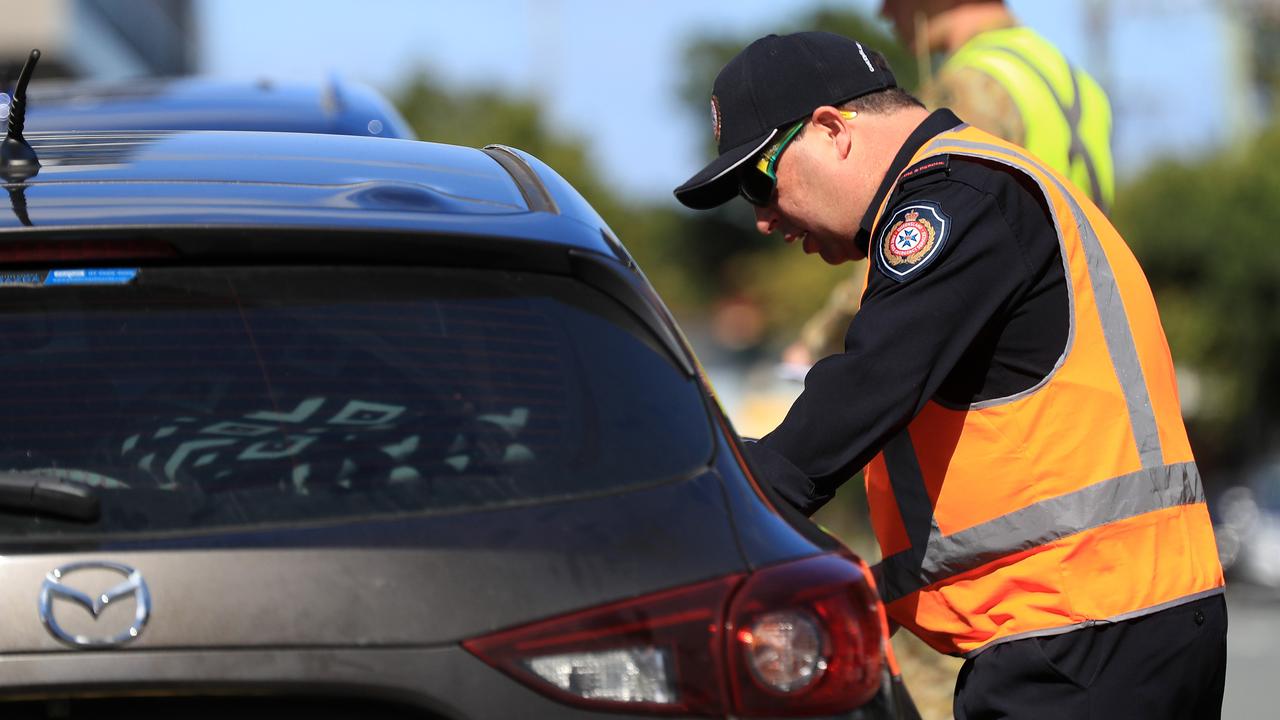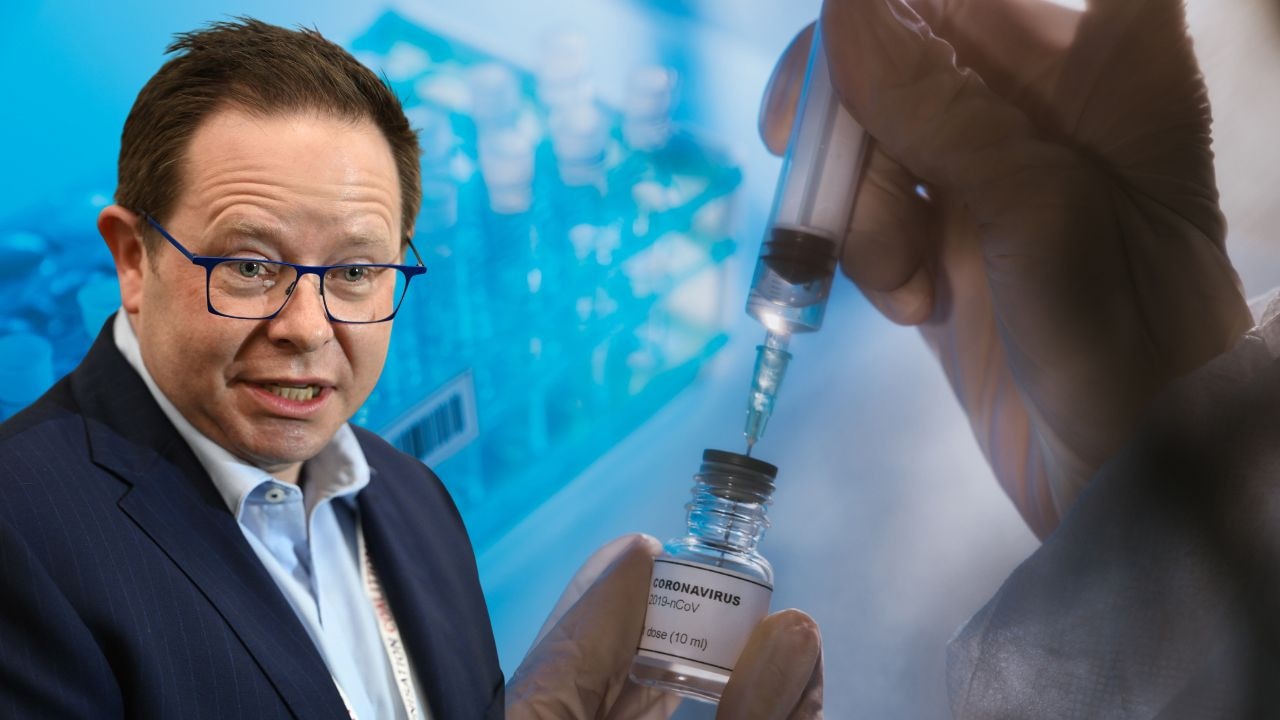The Queensland women who’ve kept us safe
They’re the unsung female heroes who researched, guarded, strategised, swabbed, tested and catered to the hungry during the pandemic.
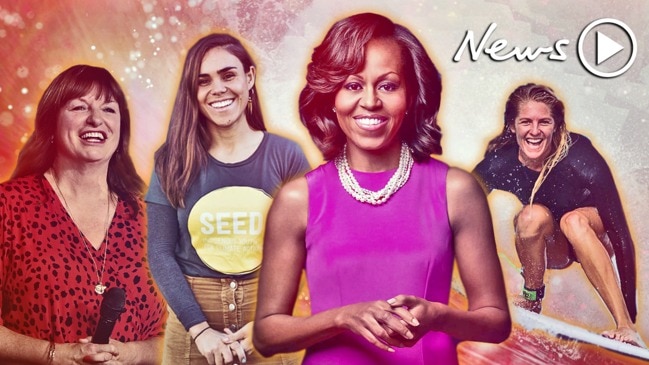
QLD Coronavirus News
Don't miss out on the headlines from QLD Coronavirus News. Followed categories will be added to My News.
They’re the women who’ve kept Queensland safe.
Through it all, they’ve researched, guarded, strategised, swabbed, tested and catered to the hungry.
They’ve made testing widely available so contact tracers could stop the spread of COVID-19.
They’ve managed hundreds of troops keeping our borders tight and our hotels safe.
They’ve sat for hours in sweaty PPE, putting themselves face-to-face with the sick.
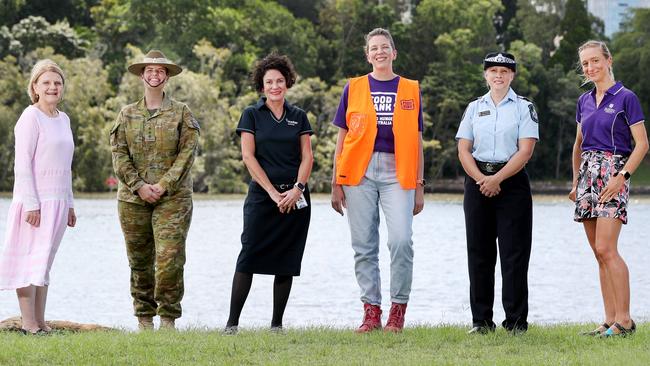
They’ve spent months helping desperate people put food on the table amid an unemployment crisis.
They’re ensured our streets are safe and our lifesaving lockdowns have been enforced.
And they’ve unlocked the secrets of COVID-19 that have helped keep the state on top of an ever-changing virus.
On International Women’s Day, meet the unsung heroes of Queensland’s pandemic response.
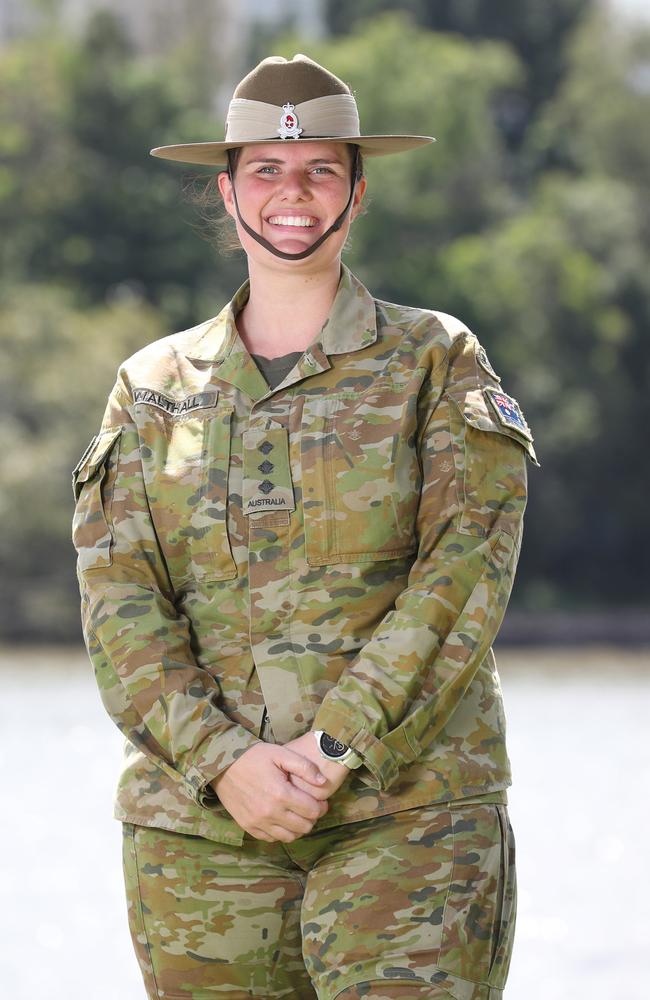
CAPTAIN ALICE Walthall, Chief Health Planner in the Army Joint Task Group 629.3, 34
For Army reservist Captain Alice Walthall, fighting COVID-19 overtook every aspect of her life in 2020.
It first challenged Capt. Walthall in her civilian life, when as a nurse at Queensland Children’s Hospital’s emergency department, she was on the front line of the growing epidemic.
“Back very early on, we had a few cases (of COVID-19) take out a few of our staff,” she said
“We had quite a few staff put in quarantine because they had an exposure, but we’ve been very fortunate. Obviously COVID doesn’t affect kids as much as other illnesses.”
Capt. Walthall was then called up by the military to ensure a group of several hundred troops working across the pandemic response in Queensland had the resources and supplies needed to do their jobs.
“There’s been health teams that have been deployed interstate,” she said.
“We did have some medical people out when we were doing border tasks.”
“There have been moments that have been exceptionally stressful.”
The 34-year-old said she was proud of the work she and her fellow civilian and military colleagues have done.
“I’m surrounded in both my civilian and my army work by intelligent, really driven women,” Capt. Walthall said.
“I think we’re so fortunate to be living in Australia and Queensland.”
With the worst of the pandemic hopefully behind her, Capt. Walthall said she was aiming to complete her studies to become a nurse practitioner in 2021.
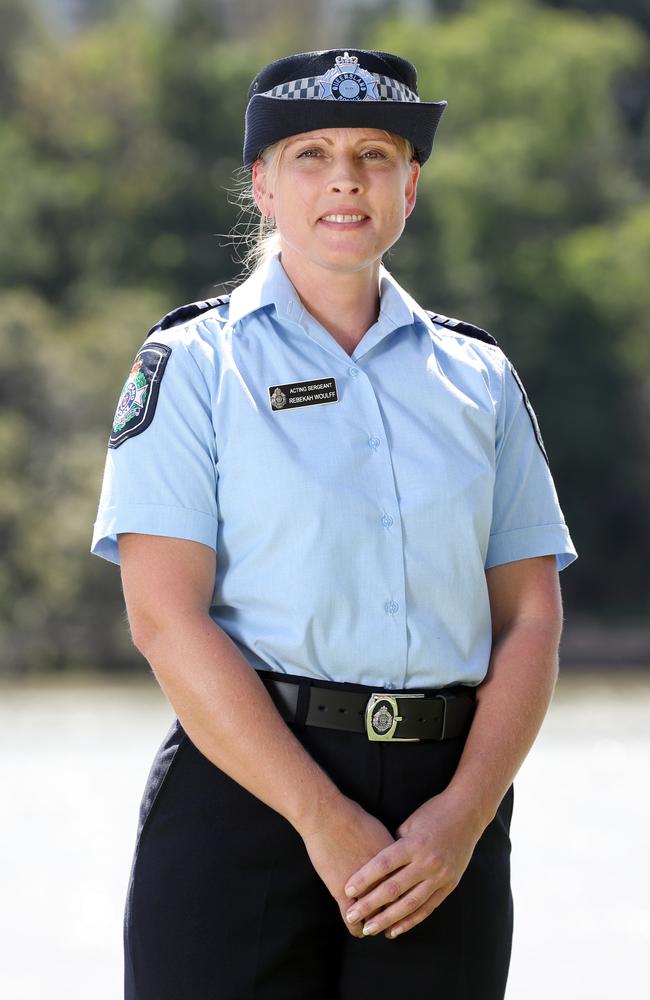
SERGEANT REBEKAH WOULFF, Rapid Response section of Queensland Police Service Taskforce Sierra Linnet
She’s been a part of the force for 15 years, yet Sergeant Rebekah Woulff ranks COVID-19 as one of the more unique situations of her career.
“I’ve policed in disaster environments such as the floods we had in 2011 and fires, but nothing even close to a health pandemic,” Sgt Woulff said.
“When we were attending a job, social distancing, the masking, do they have COVID, knowing the symptoms – that was very new to police,” she said.
Initially starting 2020 posted at Goodna Police Station, Sgt Woulff, like many other QPS officers, needed to rapidly shift her focus to fighting the pandemic in hotels and at airports.
As part of the Rapid Response section of Taskforce Sierra Linnet, she was involved in Queensland’s hotel quarantine system which has kept the virus at bay in the state.
“I did five different hotels in Queensland over the months,” she said.
“I developed our action plan … so that police, when they attended the hotel, (they knew) their duties and their responsibilities that they would have in the quarantine venue.”
“Then I moved … to the airports. That was triaging people as they entered into Queensland, writing quarantine directives and answering any questions.”
Since November, she has been in the COVID Command at Police HQ in Brisbane.
Sgt Woulff said that throughout 2020, she and many other officers were faced with unfamiliar situations, particularly in quarantine hotels.
“That environment was quite challenging for some police because they’re used to acting as police and in a policing response, not a health response.”
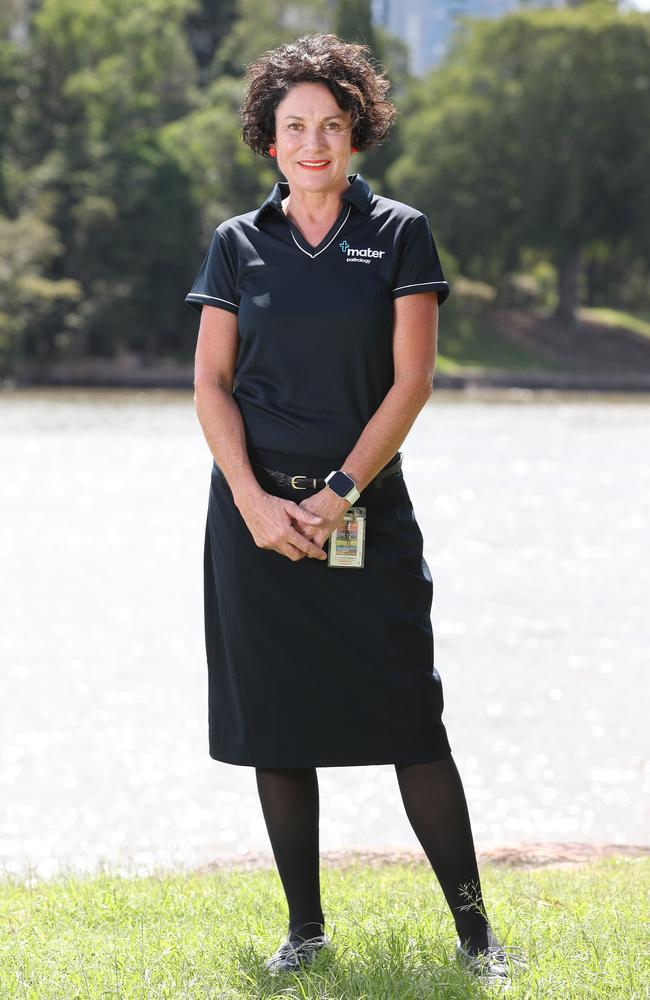
TRISH DICKSON, phlebotomist, Mater Hospital, 45
Mater phlebotomist Trish Dickson has tested thousands of people over the course of the pandemic while dressed from head to toe in uncomfortable PPE.
“I started off testing in the Emergency Department and then moved to the pop-up clinic we made on Stanley Street,” Ms Dickson said.
“The job was very gruelling,” she said.
“We would have to wear full PPE for our whole shift, we would wear gowns, masks, gloves, face shields and hair nets.”
“At the end of the day we would be dripping with sweat.”
But the army of testers across Queensland tirelessly worked, risking their lives every test by putting themselves in the same room as hundreds of people, any one of which was potentially positive with COVID-19.
“Swabbing patients was difficult, they were incredibly nervous,” Ms Dickson said.
“We had to work really hard to calm them down and put them at ease,” she said.
Testers like Trish haven’t just played a role at testing centres, but also at hotels and airports, where they’ve got to sample recently returned travellers.
“Our state is undoubtedly in safe hands.”
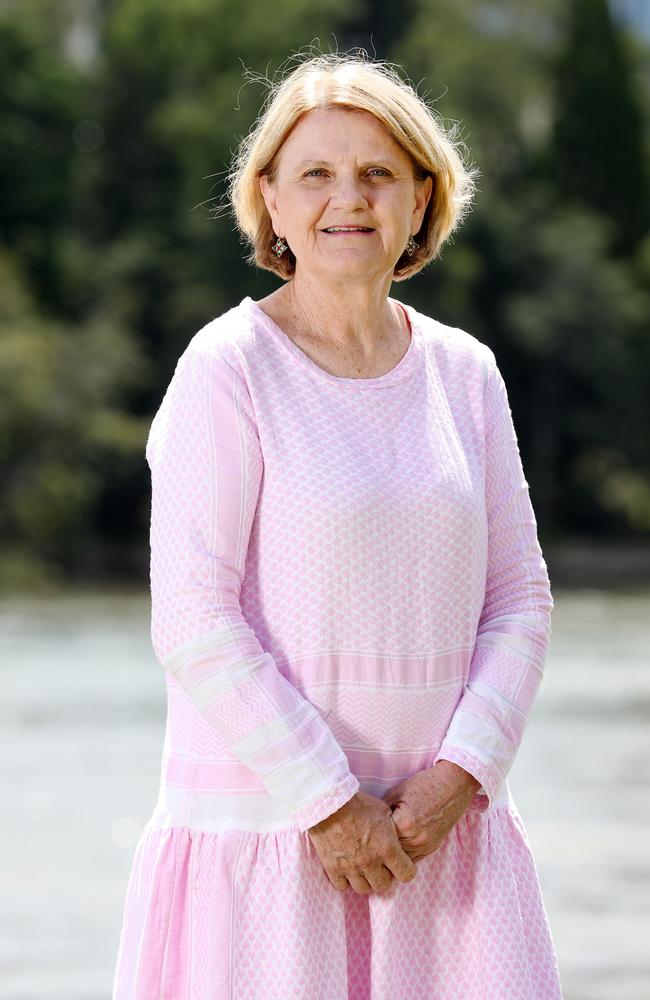
DR JENNY ROBSON, Sullivan Nicolaides pathologist in charge of molecular pathology, 65
A massive part of Queensland’s success in keeping SARS-CoV-2 under control has been widespread testing, ensuring that any outbreaks can quickly be detected and contact traced.
For that, we owe a lot to Dr Jenny Robson and her team.
She has played an integral role in scaling up Sullivan Nicolaides Pathology to deal with a once-in-a-century pandemic.
“We automated, we developed surge capacity, we had extra staff to stand up when we needed to, and did things like providing drive thrus, which was never done before,” Dr Robson said.
“We have done something like 600,000 tests,” she said.
“It has been all consuming.”
Dr Robson said Sullivan Nicolaides, whose workforce is 80 per cent women, process test results 24 hours a day, seven days a week to ensure health authorities have the ability to contact trace any positive results.
The availability of testing now is drastically better than this time last year, when tests were limited to only those returning overseas with symptoms, and when Sullivan Nicolaides pathologists were facing a virus they didn’t fully understand.
“There was a huge amount of uncertainty about what this virus would bring,” Dr Robson said.
“Those sorts of things pushed us along,” she said.
“Testing has been absolutely critical in the Australian response to keeping numbers down.”
Through the pandemic, she has also spent hours co-ordinating Sullivan Nicolaides’ role in reporting cases.
“It was hectic,” Dr Robson said.
“I think I’ve been on a tally conference every day for a year at midday, listening to what has been happening,” she said.
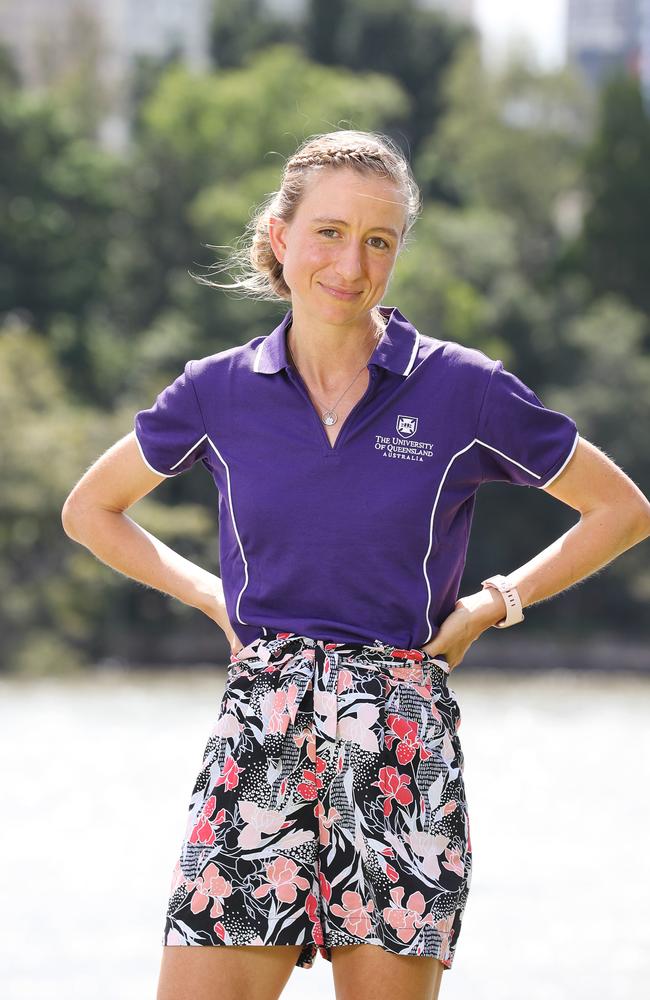
DR KIRSTY SHORT, virologist at the University of Queensland, 34
A disease like COVID-19 seen is exactly the reason why Dr Kirsty Short became a virologist.
The University of Queensland researcher, who has spent 10 years studying influenza pandemics, has helped governments globally make informed decisions.
Alerted back in January 2020 to the SARS-CoV-2 virus’ dangerous ability to spread from human to human, Dr Short made findings that would shape the response of governments across the globe.
“Children weren’t spreading the virus, definitely not to the same extent as previous pandemics,” she said.
“Our research on children and SARS-CoV-2 was cited by the UK government.”
As a result of her findings, schools weren’t required to shut down.
More recently, Dr Short also looked into the correlation between obesity and severe COVID-19.
“That and all the other research done at UQ … has been cited worldwide, has had an impact on policy,” she said.
“All of this research is still ongoing and we’re still going 24/7 to get it out there.”
The amount of study completed by Dr Short and her colleagues has been a testament to their expertise, considering how little researchers knew about the virus just a year ago.
“There was so much we didn’t know about this virus,” she said.
“We were just trying to get information out to the public that could then inform public health policy.”
“We have been going flat out since 2020, it hasn’t stopped.”
Dr Short, who was among the first in Australia to receive the COVID-19 vaccine, said attention should now turn to what lessons we can take away from the pandemic.
“It’s not going to be the last pandemic we face,” she said.
“We need to learn from this.”
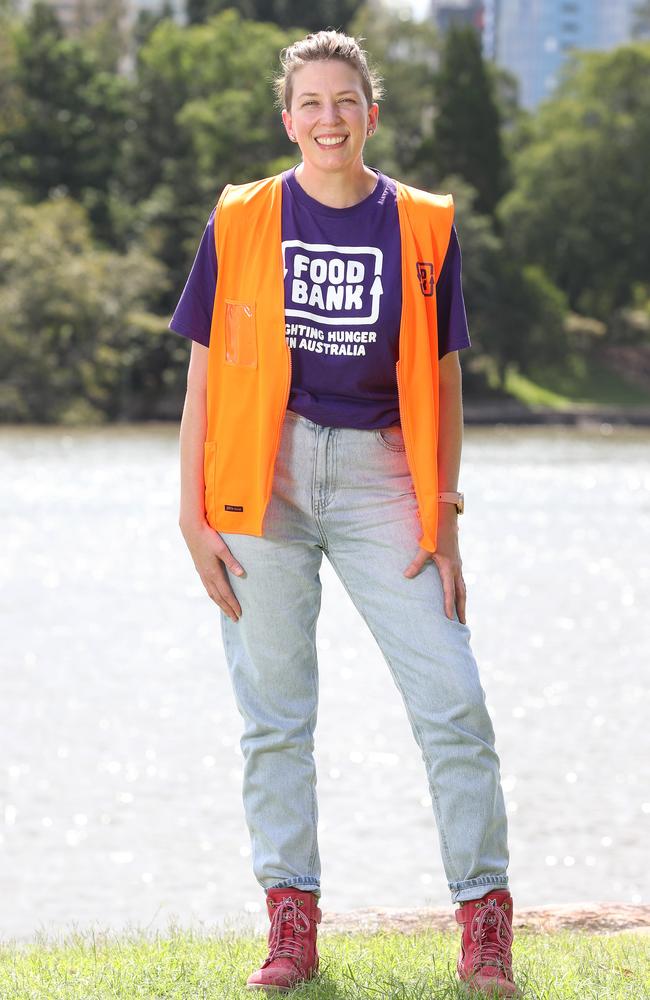
CORINNE CHILCOTT, Foodbank Queensland warehouse and distribution manager, 42
Virtually overnight, hunger in Queensland exploded.
As much an economic emergency as it was a health one, lockdowns threw hundreds of thousands of people onto the breadline.
In the face of this, volunteers and workers at Foodbank and hundreds of charities across the state were tasked with helping those most in need.
For Corinne Chilcott, 42, who manages Foodbank’s distribution warehouse, divvying up donated food was even further complicated by an ageing volunteer workforce who had to be stood down due to their high-risk status.
“So there were less people, and thank goodness we had a lot of donors who could give us food,” Ms Chilcott said.
“There were a lot of people in need,” she said.
“Foodbank was in full swing.”
Ms Chilcott’s job is to make sure Foodbank charities from as far away as Maryborough got their fair share.
“These are people who are travelling hours and then trying to fill up and get back to their communities in need,” Ms Chilcott said.
“I’ve got somebody from South Burnett who comes weekly … Maryborough, Gatton, a couple of times a week,” she said.
The task then was to make sure she could get the food to who needed it most.
“It doesn’t matter where people are from, what matters is that people are leaving with a full car or full truck.”
“There’s a lot of compassion required, because the people who are coming to you are the people dealing with people in high-risk situations,” she said.
Despite her hard work, Ms Chilcott is open about the questioning she receives as a woman in a warehouse.
But at the end of the day, she said giving back to the community was worth it.
“It’s hugely satisfying, I really really enjoy what I do.”
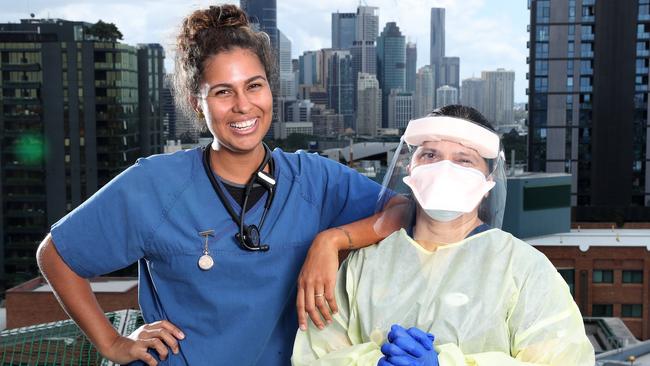
PRICILLA LOBO, Registered nurse, 34 and JEMIEKA BAILEY, Registered nurse, 26, in the Mater Hospital Emergency department
Early in the pandemic, as ordinary Queenslanders panic bought, nurses at hospitals across the state were on a war footing.
“We did a lot of training and simulations preparing us for the possibility of being overrun with COVID patients,” Mater Hospital nurse Pricilla Lobo said.
“Fortunately it didn’t work out that way.”
“We were watching what was happening overseas, and fearing it could happen here,” fellow nurse Jemieka Bailey said.
Both worked tireless hours drilling possible scenarios in case Queensland’s health system were to be put to the ultimate test by a major outbreak of COVID-19.
“We were exhausted,” Ms Bailey said.
“It was not only mentally draining but physically draining as well,” she said.
Ms Bailey said at the start of the pandemic, few could’ve predicted the state would’ve fared so well.
But the nurses’ efforts at the start of the pandemic to quarantine the sick helped stop the spread.
“During COVID we turned our emergency department around pretty quickly,” Ms Bailey said.
“We were triaging patients before they came into the hospital to minimise the risk of infection.”
“Fortunately we had so few positive cases they were appropriately managed on wards or in their own homes,” Ms Lobo said.


